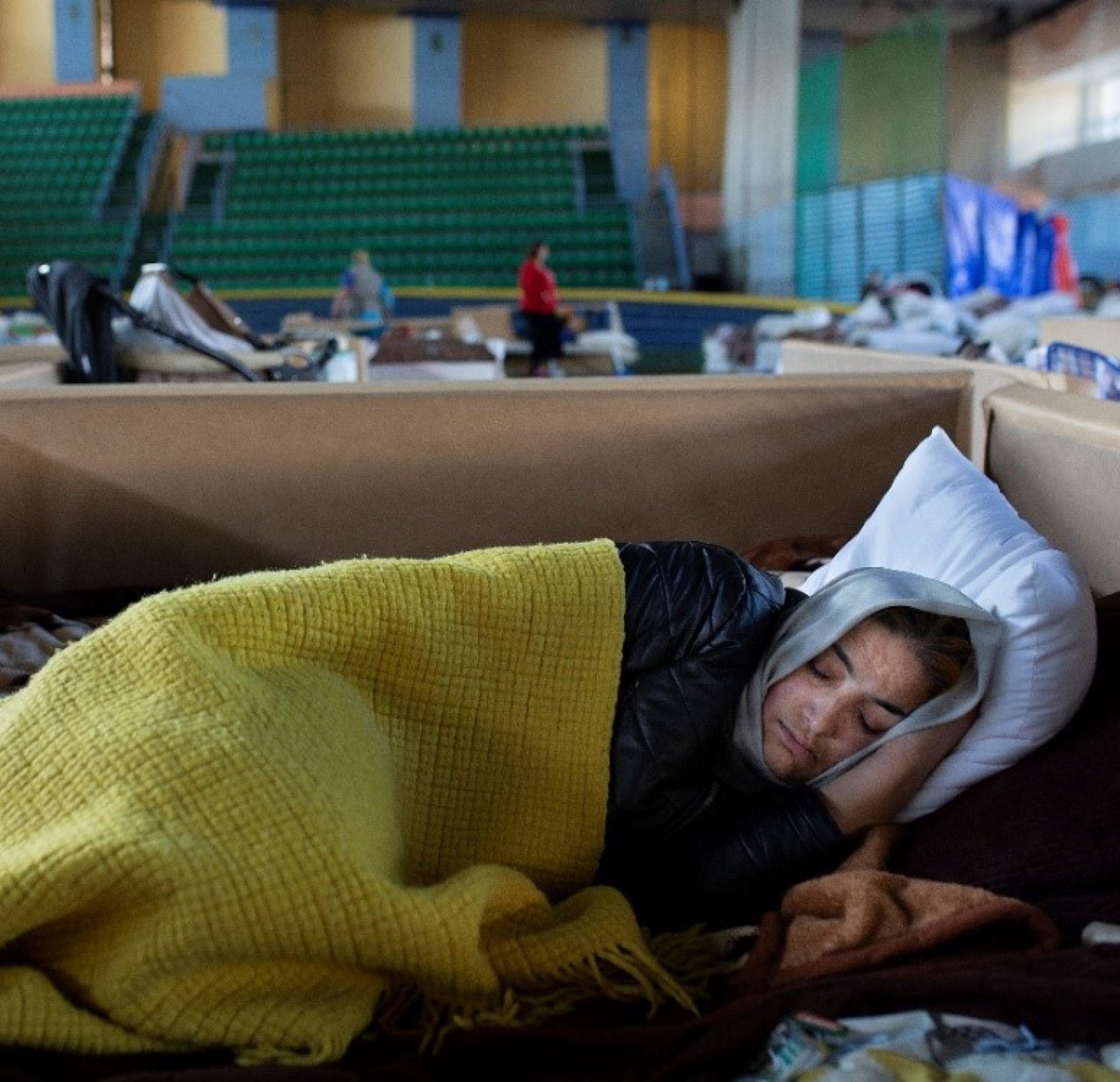One month since the start of the conflict in Ukraine, the situation could not be more bleak, with 3.5 million having fled the country, and the world on the brink of a global hunger crisis. It is estimated that 3.5 million Ukrainians are now refugees as the conflict continues, and further afield, millions face acute malnutrition due to a global hunger crisis, as the ‘breadbasket of Europe’ is ravaged by war.
Since the invasion on 24 February, the plight of Ukrainians continues to deteriorate at an alarming rate. Action Against Hunger is responding in Moldova – providing refugees with emergency food, medical supplies and information through a series of reception centres. Thousands of people arrive every day and it is estimated 145,000 people are staying in reception centres or with host families at the moment.
“We are working with municipalities in border areas to deliver direct aid to host families and refugees for hygiene protection. The needs are massive.”
Action Against Hunger is also providing emergency food and hygiene kits to those still in Ukraine as well as looking into the transfer of cash to those still within the country.
Further afield, the impact of the conflict is felt on a daily basis. Ukraine is a major player in the production of critical crops like wheat, sunflower oil & seeds, and corn – the world’s fifth largest producer of wheat – with 40% destined for Africa and the Middle East.
Even before the conflict, international wheat prices were worryingly high, exceeding the levels seen in the 2007-8 economic crisis. Yet in a month we have seen further catastrophic rises – a 50% increase in the price of flour in Mogadishu and Kenya and Somalia declaring national emergencies.
Economies that are heavily dependent on cereal imports, with high levels of debt or low levels of stock, are all especially vulnerable and the escalating prices are not just affecting wheat alone – there is already a drastic impact on the rising oil and gas prices which is dramatically raising the price of ground transport, fertilisers and shipping. All of these factors are directly impacting the cost of delivering humanitarian aid, the charity has found.
“The conflict in Ukraine is devastating, and while we respond to the horrific humanitarian disaster unfolding before us, we must also do everything we can to prevent a global hunger crisis. We know 811 million people in the world are living with hunger and we must act now to prevent humanitarian disaster on a terrifying scale.”
Action Against Hunger has been working actively with communities to help create sustainable solutions for many years, helping people grow drought-resistant crops, providing cash to start small businesses and installing early warning systems to get ahead of acute malnutrition. Yet with the complexities of Covid, climate change and escalating food prices, the lean season was already predicted to be extensive and regions such as the Sahel are on the brink of extreme food insecurity.
The charity is calling for urgent action by the international community:
Jean-Michel continues, “We know that acting early to support pastoralists and farmers is more cost effective than responding after famine has been declared. But at the same time, let’s also be clear – the humanitarian need is now, and it can’t wait. We must pull together, across public and private sectors, to turn the tide on this global hunger crisis.”


